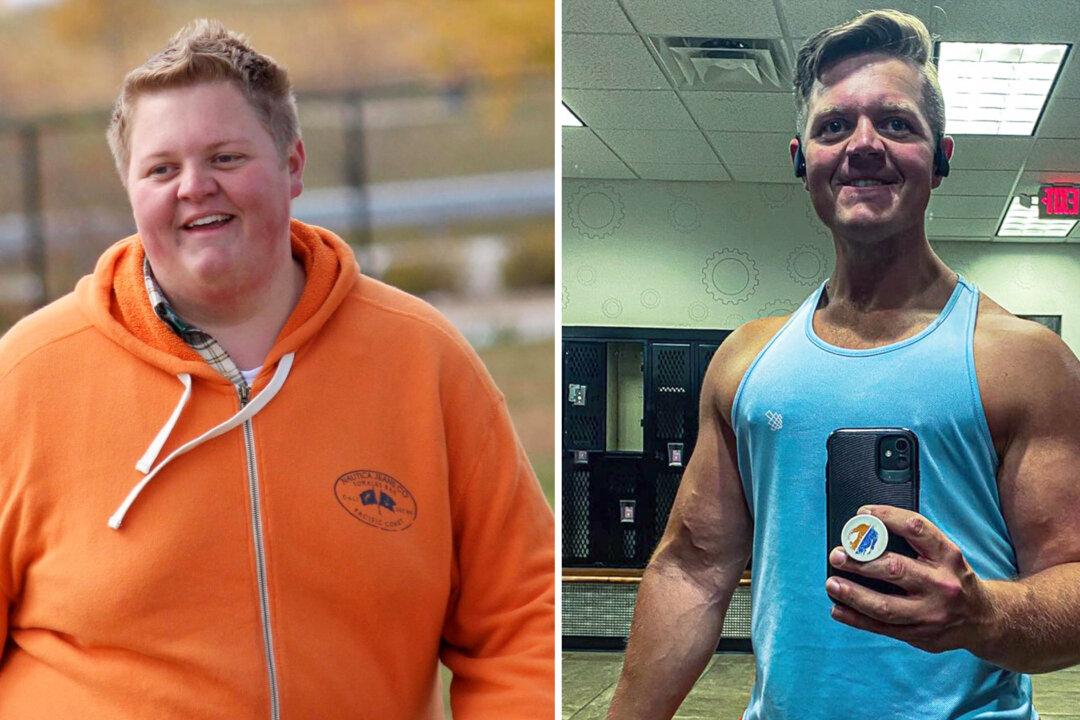A morbidly obese Michigan man who grew tired of his “funny fat kid” persona embarked on a massive lifestyle overhaul, ditching his 10,000-calorie diet, losing nearly 200 pounds, and eventually competing as a bodybuilder.
David Roden, 31, from Grand Rapids, Michigan, told The Epoch Times that his story goes against “pretty much every preconceived notion” of childhood obesity.





